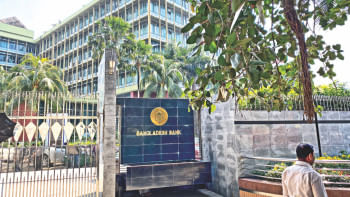Unquestioned amnesty to black money may not continue

Holders of black money in Bangladesh are unlikely to get the opportunity to legalise their undeclared wealth without facing any questions about the sources of their income in the next fiscal year, officials said.
Besides, the unquestioned amnesty to bring back money stashed abroad may also not continue in 2023-24, which begins in July.
The move might come as no taxpayer has declared in their tax returns to have brought back their untaxed income by using the opportunity to legalise the wealth by paying only 7 per cent tax, which is less than a third of the highest tax rate of 25 per cent applied to personal income in Bangladesh.
The National Board of Revenue (NBR) offered the tax privilege with the hope that people who have their money in foreign lands will bring it back, in a bid to augment direct tax collection, the second-biggest source of revenue for the tax authority.
Under the rule, a taxpayer can show their cash, bank deposits, bank notes, convertible securities and financial instruments in their returns by paying only a 7 per cent tax on the amount.
The money will have to be transferred through the banking channel and banks will deduct the tax from the money to deposit it to the state coffer through automated challan.
A senior official of the NBR said there has been no response from such black money holders.
"We have not received any tax under the provision of the offshore tax amnesty so far."
The scope, which drew a lot of criticism from various quarters since such amnesty discourages honest taxpayers and provides incentives for non-compliance, will end on June 30 this year.
Two other officials said the benefit is unlikely to continue in FY24.
The opportunity to legalise black money without facing any questions from any government agency might not be offered in the upcoming financial year. In 2020-21, the NBR granted the opportunity.
It received a huge response as well and 11,859 taxpayers showed their black money in their tax return files and paid Tk 2,064 crore in tax in the year, NBR data showed.
The tax authority discontinued the opportunity in 2021-22 and imposed rules that taxpayers will have to pay a 25 per cent tax on the undisclosed amount and a 5 per cent penalty on the payable taxes.
This time, the responses were lukewarm, said officials.
In the current fiscal year, the NBR has maintained a special tax treatment for investments in buildings and apartments, without keeping the provision of unquestioned amnesty.
In Bangladesh, the exact figure on black money is not available.
In 1985-86, SA Latifur Reza, director-general of the Bangladesh Institute of Development Studies (BIDS), estimated the black economy to be as high as a third of gross domestic product. Another estimate made by Dr Asaduzzaman of the BIDS put the size of the underground economy at 40 per cent, according to a writeup of Mohammed Farashuddin, a former governor of the central bank, last year.
Abul Barkat, a professor of the economics department of the University of Dhaka, estimates that black money is in the range of 33 per cent, while Finance Minister AMA Muhith, in 2013, said that 41-82 per cent of GDP might be outside the mainstream economy, said Farashuddin, adding it is reasonable to assume that the current black money to GDP ratio is around 40 per cent.
On the other hand, tax revenue in Bangladesh remained among the lowest in the world at an estimated 7.6 per cent of GDP in FY22.


 For all latest news, follow The Daily Star's Google News channel.
For all latest news, follow The Daily Star's Google News channel. 



Comments